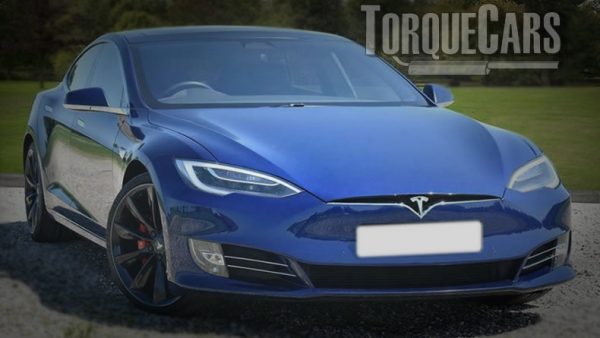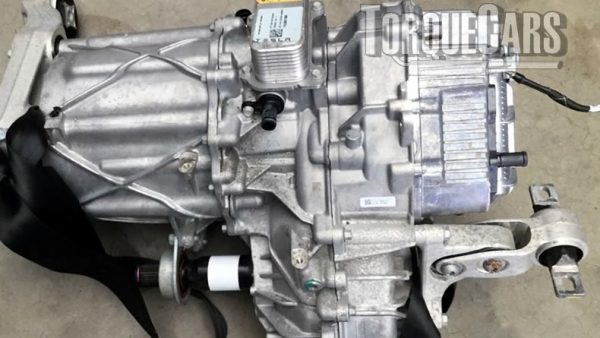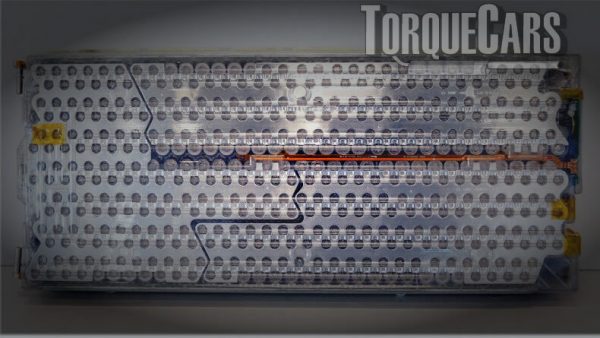Converting your car to electric power
Instead of buying from the ever-growing Electric Car market, you may wonder can I convert my car? What is required, and how much does it cost?
If you are enthused by the instant torque and acceleration, like the idea of ‘filling up’ for just a few pounds, or are environmentally conscious - then converting your own car may be up your street.
With more businesses designed for home EV conversions, picking up the necessary components can be quite simple. Especially with older electric cars out there, reusing their batteries is a great start.
As a complete beginner, you can reach out to several bespoke businesses which can complete the conversion for you for complete peace of mind.
For popular conversions, an off the shelf kit can be purchased for you to bolt in and convert from the comfort of your own home (or indeed garage).

Buying an off the shelf electric car is what most people will do but we know quite a few are so attached to their project cars they will jump at an opportunity to keep the car current (pun intended).
Which components are needed for a conversion?
The best part of converting your own car is the flexibility to choose which components you need for your design and budget.
An EV conversion typically involves the following components: batteries, motor, motor controller, controller cooling system, motor cooling system, battery cell management, battery monitor, VCU, charger, charge port, contactors, emergency disconnects, and fuses.
Electric Motors for your car
Let’s first tackle which motor to go for. A brushed DC motor is the cheapest setup and is a great starter for learning the electric conversion skillset.

The benefit of this motor is that you can most likely keep the original transmission, with the use of an adapter plate to join them together.
Then there are brushless DC motors, with no copper surfaces or brushes that wear out. These motors also enable the likes of re-gen, where power can be put back into the battery when the car slows down, harnessing otherwise wasted heat energy.
An AC motor is the final option. Both AC and brushless DC motors are liquid cooled and sealed units, eliminating any water ingress or temperature concerns for your conversion.
Transmission Mods for an EV conversion
A manual transmission is the easiest to carry over, therefore make sure to keep your existing one.
The power from the electric motor can be transmitted through it (as a convention engine would), using an adapter plate and coupler - some of which can be purchased as a kit online with pilot holes for your transmission.
Sourcing and Fitting Battery Packs
Battery cells are a vital part in determining the range, weight, and price of your EV conversion.
Either with several 12V packs, or a second-hand pack from say a Nissan Leaf or Renault Zoe which has been dismantled by a breaker.
Make sure the location for the batteries is secure and ensure they can be bolted down.
We've also seen people creating their own battery packs using used LiION batteries. There are quite a few battery kits around that will hold the cells, allowing them to be connected together and securely mounted.
Controller
The controller is the brains that control the power flow from the batteries to the motor.
This is one of the most important parts of the conversion and will regulate motor speed and discharge rates on the battery, without it you risk burning out the motor, not having much control over the car and battery life will be considerably reduced.
A range of options to choose from but a simple rule, the higher the current rating, the quicker and more efficient your EV will be.
Battery Management Systems
Battery Management Systems (BMS) closely monitor and control the health of the battery cells. Also providing instructions for the controllers to deliver power at suitable rates to keep optimum battery health.

Fully charging the batteries and keeping it connected to the charger, or allowing them to completely drain, will be detrimental to the life of the batteries.
The charge rate also needs to be regulated, fast charging all the way can be detrimental to the life of the battery.
All your cells are linked in some way to a BMS and will show you if anything were to disrupt the battery health, with some instructions to cut off power to cells if something “out of the ordinary” happened.
Control Units
VCU’s or otherwise known as ECU’s are control units that provide all the instructions for usual vehicle operation.
Such as calculating correct torque values from the accelerator or brake pedal movements.
It also controls the car's state, in an EV’s case: on, off, driving, charging or error reporting.
Charge Port
The charge port is also important to consider, as the UK uses Type 2 connectors.
Typically, they are standard wall box connectors that are fitted to your house and are a suitable charge speed for a conversion.
If you are ok to charge in a few hours or overnight, then this is the most affordable option.
Otherwise, rapid charging is in the form of a CCS or Combined Charging System with a beefier connector that utilises AC or DC charging and boasts 0-80% charging times of 30-40 minutes (if your vehicle is capable).
We've seen these fitted in the petrol flap which keeps everything tidy, but you are only limited by your imagination as to where to install your charge port.
Pros and cons of converting to electric powertrain
Benefits include cheap re-charging and low running costs. You are also helping reduce your greenhouse gas emissions and if performed well, a long life of a car that would otherwise be left for scrap.
Which is why it is popular for rare classic cars to be converted to preserve the life of a true icon - such as this DB6 Electric.
That being said. It is not too easy to repair a converted electric car, you need an expert mechanic to handle high voltage parts, as they can be fatal if not treated correctly.
There are also myths about batteries only lasting a few years and needing replacement. Don't be put off by these horror stories which are often down to neglect on the part of the owner.
But ultimately it is unknown how your charge cycles; environment and level of discharge will affect the life of the batteries.
If you keep the battery at around 80% charged, it will last a lot longer, and don't let it go below 15% charge. You'll also benefit from quicker charging to an 80% level, although you'll have to recharge more frequently.
Then of course there is the balance of range and cost. Having 200-miles of range is great, but is it typically needed for your sort of driving?
The more expensive a conversion gets with the more cells you add. Getting the right balance of weight, cost and range can be tricky.
Locating the battery pack is also a challenge, the fuel tank area is an obvious choice but this can add a lot of weight to the rear of the car and due to removing the engine at the front you may well find you need to get the suspension setting revised and altered.
How much does it cost to convert your car?
There are a number of ‘off the shelf’ conversion kit options out there. We're going to focus on the UK market, as it's relatively new, over in the US companies have been offering EV conversions for quite a while now.
Including old style beetle conversion kits for just over £6,400 from everything-ev.com. Swindon Powertrain, for example, offer a Classic Mini Conversion Kit with a complete assembly mounted on a front subframe for a simple bolt on and plug in solution, costing around £10,600.
Then comes the recent announcement from Ford, with their Mustang Mach E Motor brand new available for your very own conversion, at a price of around £3,000.
These prices indicate that it is not a cheap operation. But in most cases it is cheaper than buying an electric car outright, and the challenge and fun of the project more than makes up for it.
With the correct second-hand parts sourced from online auction sites or local advertisements, the price can be a lot lower.
Will I need to register my EV?
This depends much on where you live and your local laws, in virtually all cases there will be paperwork involved and some kind of inspection/testing requirement.
The most important step is getting approval for use on the road of your thoroughly altered vehicle.
This involves registering it as a new car, with a vehicle inspection report, original registration certificates, a copy of the receipts used during conversion, and images of the vehicle.
Here in the UK at the time of writing the DVLA give the following guidance.
A points system from the DVLA is then tallied. At least eight are required with five awarded from the original chassis.
Further points are awarded with original suspension, axles, transmission, steering - each worth two points. Therefore, in most cases, your conversion will not affect these major systems and should be approved.
A model report is also required, which can cost hundreds of pounds. As well as making sure you fill in the correct application in the first place, potentially taking hours.
Ultimately, an EV conversion will be some undertaking for anyone wishing to do so - requiring a lot of time and effort, but very rewarding if performed well.
We would love to hear from you in the comments below or in our forums if you have done or are planning an EV conversion for your car. This is a new area, and your experiences and wisdom will help many others as you work through the challenges.
Please Check out my YouTube channel, we're regularly adding new content...
PLEASE HELP: I NEED YOUR DONATIONS TO COVER THE COSTS OF RUNNING THIS SITE AND KEEP IT RUNNING. I do not charge you to access this website and it saves most TorqueCars readers $100's each year - but we are NON PROFIT and not even covering our costs. To keep us running PLEASE Donate here
If you liked this page please share it with your friends, drop a link to it in your favourite forum or use the bookmarking options to save it to your social media profile.
Feedback - What do You Think?
Please use our forums if you wish to ask a tuning question, and please note we do not sell parts or services, we are just an online magazine.
Help us improve, leave a suggestion or tip
Please watch this video and subscribe to my YouTube channel.

 Click to accept YouTube Cookies & Play.
Click to accept YouTube Cookies & Play.